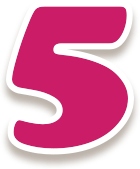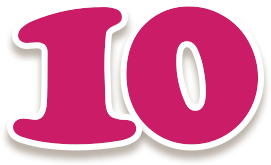How to Bake Pi, Books Cards & Offers - Wonder Shuffle
 7
7 0
0 0
0 0
0
How to Bake Pi is simply terrific–one of those unclassifiable books that’s incredibly smart and incredibly appealing. It’s about math, and why it’s more than just numbers, why it’s more weird and wonderful than you probably think, why math makes hard things easier, why it shouldn’t be frightening or baffling, and what category theory is. It’s also about cooking and baking–and since math is about drawing analogies, Ms. Cheng provides us with a myriad of examples including custard, cake, lasagna, baked Alaska, fruit crisp, flourless chocolate cake, bread pudding, and all manner of other delicious treats. (She even includes the recipes in case we want to try some of these treats, and analogies, at home.)
Sounds intriguing, yes? What else is it about, you ask? Well, abstraction, and using your imagination. How children learn to count. Lego blocks. Running the New York City marathon. Generalizations. Topology and how a bagel is like a coffee cup. Rationality. Logic. Paradoxes. Small talk at cocktail parties. Being a female mathematician trying to make small talk at cocktail parties. St. Paul’s Cathedral. Families. Mathematical family trees (Ms. Cheng’s mathematical great-grandfather was Alan Turing). Musical family trees (her pianistic great-grandmother was Clara Schumann). Belief. Understanding. Knowledge. And, here’s the most important part, I think…I admit that I do not understand every bit of her explanations regarding her esoteric field of study, but what I absolutely do understood here is the joy and the beauty that she has found in mathematics. Her love for her chosen subject, her joy in teaching it, is infectious. It makes me want to learn more and read more. It makes me want to take one of her classes (alas, a bit geographically inconvenient for me). It makes me want to read her other books. It makes me want to meet her at a bar and talk for hours, or visit her and try some olive oil plum cake. I thought of Howard Thurman's famous quotation while I was reading How to Bake π: “Don’t ask yourself what the world needs. Ask yourself what makes you come alive and then go do that. Because what the world needs is people who have come alive.” Her aim is to rid the world of “math phobia.” I’d say she’s well on her way.
Here’s how the book ends:
“…understanding is still kept a secret, at least in mathematics. Students of all levels are shown the rules but kept in the dark about the reasons. We encourage children to ask the question ‘Why?’ but only up to a point, because beyond that point we might not understand it ourselves. So we stifle their quest for illumination to match our own inability to provide it. Instead of being afraid of that darkness, we should bring everyone to the edge of it and say: Look! Here is an area that needs illumination. Bring fire, torches, candles–anything you can think of that will cast light. Then we can lay down our foundations and build our great buildings, cure diseases, invent fabulous new machines, and whatever else we think the human race should be doing. But first of all we need some light.”
Pick up this book, learn and enjoy, and let there be light upon us all.
HOW TO PURCHASE: AMAZON
***
BOOK: How to Bake π–An Edible Exploration of the Mathematics of Mathematics
AUTHOR: Eugenia Cheng
YEAR OF PUBLICATION: 2015
LEAD-IN IMAGE
Book cover, Basic Books









